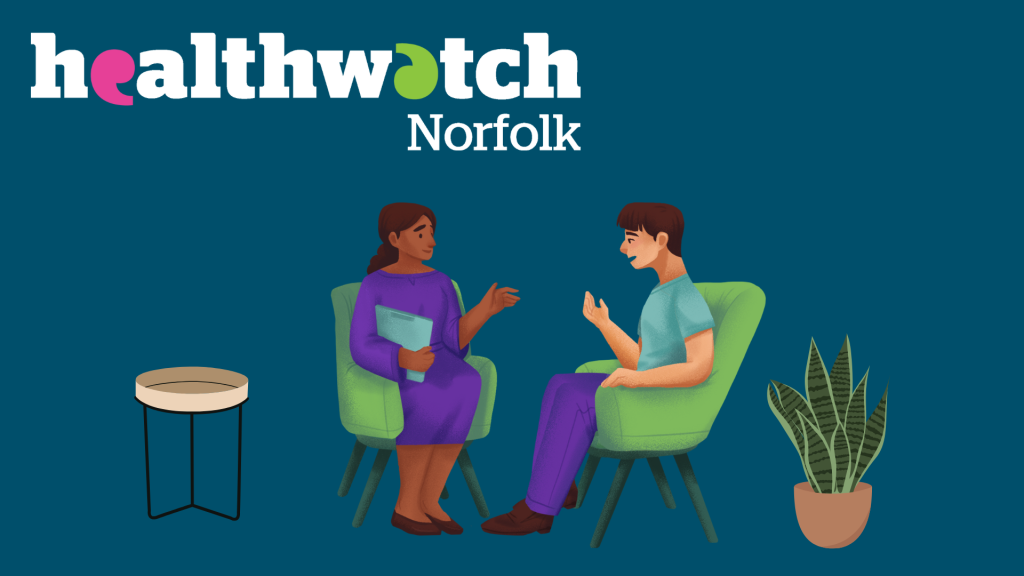Carers of people living with serious mental illness (SMI) face a number of barriers to practical, financial and emotional support, according to the latest research from Healthwatch Norfolk.
We were commissioned to undertake a three-year project by the Norfolk and Suffolk NHS Foundation Trust (NSFT) to find out about the experiences of carers of adults with SMI.
In the second year of our project we focused on young carers (under the age of 18), those under the age of 45 and carers who have English as a second language, to see how they can be better supported. We also spoke to frontline staff members at NSFT to see how the experiences of carers of people with SMI could be improved.
What did we find?
Across all groups, we found that carers faced a number of challenges due to the unpredictability of the illnesses and the lack of understanding about their impacts.
Many carers struggle with anxiety and looking after their own wellbeing, while the stigma that exists around SMI can prevent them from seeking the support they need through fear of judgement.
Young carers are particularly vulnerable because they are not always recognised as carers, or given the support they need to understand and cope with the behaviour of those they are caring for.
Carers who do not speak English as a first language told us they find it difficult to access the financial support they’re entitled to, while carers under the age of 45 struggled to cope with looking after loved ones with SMI alongside their other family and work commitments.
Whilst staff working in mental health support services told us that they want to help carers and do their job well, many state that they are challenged by large caseloads and the clinical record system currently in use.
These findings are outlined in a second report, which you can read here.
Recommendations
Based on what we heard, we have made a number of recommendations, including:
- Improve support and recognition of young carers
- Improve consent procedures and communication with carers in crisis situations
- Improve the electronic patient record system to make it easier to record and view carer details
- Produce more written information for young carers about SMIs
- Staff should ensure that consideration is given to carers’ other responsibilities
In response to our findings, the Norfolk and Suffolk NHS Foundation Trust have outlined a number of initiatives that have been implemented to ‘ensure carers are recognised, recorded within the clinical record, valued and included across NSFT services’.
These include improvements to better capture carer information, establishing a group to oversee progress, setting clear targets for carer identification and working with partners to better support young carers and ensure they are recorded correctly in the electronic patient record.
Response
A spokesperson from NSFT said “We would like to extend our sincere and heartfelt thanks to Healthwatch and to all the individuals, carers, young people and families who so generously shared their experiences and insights as part of the Year Two report.
“Your contributions help us understand the realities of caring for adults with serious mental illness, and they have shaped the actions we are taking as a trust to support carers better.
“The actions set out address the recommendations in the Healthwatch report and reflect our significant commitment to improving carer involvement and support and to provide safer, kinder and better care for our service users, carers and families.”
Alex Stewart, Chief Executive of Healthwatch Norfolk, said:
“This report highlights the invaluable role carers play in the lives of their loved ones and in ensuring that they are looked after. But it also highlights the extreme challenges of caring for someone who is living with serious mental illness and the impact it can have on the carer’s own life and wellbeing.
“We welcome the moves that NSFT has made to address the challenges identified, including the creation of the new Carers’ Charter, which has crucially involved the contribution of service users and carers in its development.
“We hope this will ensure the voices of those at the heart of this issue are heard and supported going forward.”
A video about this project and our findings can be viewed here. A subtitled version of the video can be viewed here.


